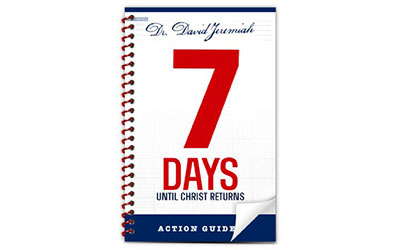Awake, O Sleeper
A popular call to backsliding believers to wake up from their slumber and bear fruit for Christ. Is the call a one time transition from death to life, or a never-ending struggle to maintain an acceptable state of wakefulness, and fruitfulness?
(Bấm vào đây để đọc tiếng Việt)
Not applicable
 Ephesians 5:14, which is a direct quote of Isaiah 51:17: “Awake, O sleeper! Rise from the dead, and Christ will shine on you!”, is commonly used to issue the call to nudge believers from their status quo. However, a question that must be raised is: Should this verse be applied to believers, or only to those who are still apart from God? In fact, this article will show that the verse should not be used in any context including either for evangelism or for edification in the body of Christ, for the reason that it’s not meant for such purposes.
Ephesians 5:14, which is a direct quote of Isaiah 51:17: “Awake, O sleeper! Rise from the dead, and Christ will shine on you!”, is commonly used to issue the call to nudge believers from their status quo. However, a question that must be raised is: Should this verse be applied to believers, or only to those who are still apart from God? In fact, this article will show that the verse should not be used in any context including either for evangelism or for edification in the body of Christ, for the reason that it’s not meant for such purposes.
For evangelism?
In John 11:1-44 where Jesus raised Lazarus from the dead, he spoke: “Lazarus, come forth.” Do you think Jesus waited for Lazarus to hear his call and to make a decision whether he should come out or not? There is no way a man who had been dead for four days would be able to hear the call and walk out of his tomb. It was more for the observers around him at that time, Lazarus’ sister Martha and perhaps others who were present there to know what was about to take place, a miracle that they had never seen before, a demonstration of the power of God, and ultimately the announcement of the coming of a new era, the introduction of the New Covenant between God and Man.
Therefore it can be asserted that this verse, Isaiah 51:17, cannot be used for evangelistic purposes, neither should it be used to wake those who are already alive in Christ. For all practical intents and purposes, it’s an announcement of what is to come.
For sanctification?
What can be the application of Isaiah 51:17 to believers? To wake them up from their spiritual lethargy? Even assuming that it is scripturally correct to do so, what is the success rate? Practically zero in my experience. But it’s not even scripturally correct as the attempt to apply this verse to believers assums a theology that believers, at least most of them, are still dead, which means Christ’s death on the cross was in vain, that they’re still in their sins (1 Corinthians 15:17).
It’s a prophecy
Isaiah 51:17 is a prophecy of what Christ will bring through the cross, a new life of the indwelling Spirit of God that was lost in Adam but will be given to those that believe. Just as God gave his Spirit, his breath, that brought a lump of clay to rise up to become the first man in creation, so will he give to spiritually dead man the life they need. It’s not a call to dead man that they may come alive, not a call to spur carnal believers toward spiritual productivity, but a promise of a new and living way to God through Christ’s body on the cross.
More than conquerors
If we’re more than conquerors according to Romans 8:37, how can it be that someone is trying to call us from the dead? It doesn’t make any sense, does it? We also know that we’re conquerors in the sense that Christ had overcome sins for us, he had changed our status from condemned sinners to children of God, he had blotted all our sins and made us whiter than snow, and we know that no matter what our physical state is, rich or poor, in good health or in sickness, in or out of relationships, financial success or setback, it has no bearing on our eternal inheritance that no one and nothing can take away.
Buried and raised with Christ
And if Christ has not been raised, your faith is useless; you are still in your sins. (1 Corinthians 15:17)
Now if we died with Christ, we believe that we will also live with him. We know that since Christ has been raised from the dead, he is never going to die again; death no longer has mastery over him.. (Romans 6:8-9)
Therefore we have been buried with him through baptism into death, in order that just as Christ was raised from the dead through the glory of the Father, so we too may live a new life. (Romans 6:4)
Christ was raised from the dead, and so were you.
God in us
And when you heard the word of truth (the gospel of your salvation)–when you believed in Christ–you were marked with the seal of the promised Holy Spirit, (Ephesians 1:13)
He redeemed us in order that the blessing promised to Abraham would come to the Gentiles in Christ Jesus, so that by faith we might receive the promise of the Spirit. (Galatians 3:14)
How can one who is indwelled with the Holy Spirit still be dead and need to be awakened? He’s alive more than Adam before the Fall.
Presented to God as without blemish
But now he has reconciled you by his physical body through death to present you holy, without blemish, and blameless before him. (Colossians 1:22)
Note that our being holy and without blemish does not mean that we possess these qualities in and of ourselves, but it is an imparted perfection bestowed upon us from Christ. How can you be more alive than this?
Drowsiness as part of life
Remember the parable of the ten virgins when all of them, both the wise and the foolish, fell asleep while waiting for the bridegroom to arrive? The parable pointed out that the problem with the foolish virgins were not because of their falling asleep, as the wise ones, too, did fall asleep, but because they embarked on the journey without the essential and absolutely required ingredient: oil for their lamps. The drowsiness experienced by the virgins may take many forms in the human experience, as a matter of fact, it is through the setbacks in life which there are many that the Lord prepares us for eternity. Some may advise you to stay awake and be always watchful, I’ll say you need to enter God’s rest as often as you can (Hebrews 4:11).
You’re alive forevermore
The call for dead souls to awake from their slumber of death no longer applies to those who have transitioned from death to life as they placed their trust in Christ. But many believers do not know that. They would hear the call and accept it as normal, that they should wake up to something better than where they currently are, in a manner and belief not any different than adherents of religions that believe in some form of reincarnations through which they may advance to a better state of existence. In using a shifting standard to evaluate their standing before God and their relationship with him, their cannot have peace, and therefore they will always worry about what the Lord thinks about them. This is not the way to live a Christian life, they should instead heed the call of the Hebrews writer’s admonition to fix their eyes on Jesus (Hebrews 12:2; John 3:14). Though they may lead lives of goodness and virtues, they no longer count on them toward their standing before God, but instead they rely only on Christ’s own righteousness for their qualification.
What’s the big deal?
It’s a big deal because if the critical matter of assurance of salvation cannot be settled, the believers will spend the rest of their lives trying to achieve what Christ already accomplished for them. They will be like a dog chasing its own tail, toiling in the circle of frustration.
Though the believers may at times grow weary, or become drowsy and fall asleep as the time of Christ’s second coming may not happen in their lifetime, they don’t need to be awakened as if they might be in a sleep of death. No matter what state they might be in, their place in the heart of God is secure as it is signed and sealed by the blood of the Lamb of God and the very breath of Life of the Holy Spirit just as it was when he breathed into the nostril of Adam and he became a living being. No matter what their temporal state might be, living in peace and tranquility with good health, or attacked from all sides by circumstances beyond their feeble attempt to control, there is a certainty in their hearts of their perfect standing before the Most High God as they’re fully clothed in the righteousness of Christ.
A misapplication of Isaiah 51:17 may be consequential in that the central focus of the verse is shifted from what God will do to what man will try to achieve, from God’s immovable plan of salvation to man’s futile attempt to achieve what only Christ can. One brings hope, the other brings hopelessness. How this little verse is interpreted can tell you a lot about the ministry that uses it.
Grace and peace be with you.
Nghi Nguyen
- Scripture quoted by permission. All scripture quotations, unless otherwise indicated, are taken from the NET Bible® copyright ©1996-2006 by Biblical Studies Press, L.L.C. All rights reserved.
Disclaimer: This is my own opinion on the topic, which does not necessarily reflect the church's theology, or beliefs of the individuals in it — Nghi Nguyen

